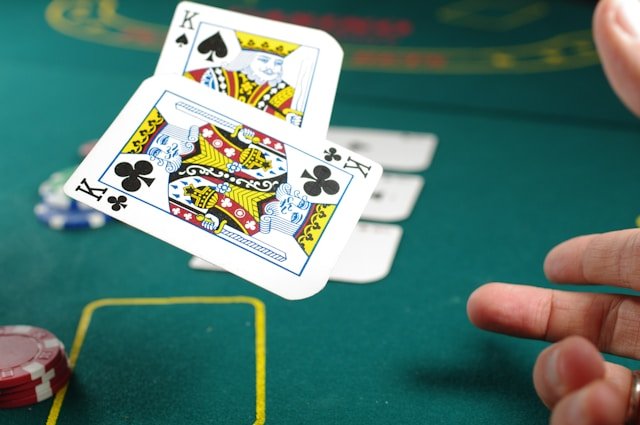Poker tournaments are a thrilling arena where players compete not just with their cards, but with their wits, strategies, and psychological prowess. Unlike cash games, where you can rebuy if you bust out, tournaments offer a fixed number of chips, creating an environment where every decision matters. To navigate this landscape successfully, players must employ a nuanced strategy that balances aggression, patience, and adaptability. In this article, we describe the intricacies of poker tournament strategy, providing insights and tips to help you elevate your game and outmaneuver your opponents on the felt.
Understanding the Dynamics
Unlike cash games, where the chips in front of you represent real money, tournament chips hold a fluctuating value. As blinds and antes increase over time, the relative value of chips changes, influencing the optimal strategy. Early in the tournament when the blinds are low, players can afford to play more hands and take calculated risks. However, as the blinds escalate and the tournament progresses, survival becomes paramount, requiring a shift towards tighter play and more selective aggression.
Important Aspects in Poker Tournament Strategy
Survival
In tournament poker, survival is crucial. You can’t win if you’re eliminated. Therefore, prioritize staying alive over accumulating chips, especially in the early stages. Avoid unnecessary confrontations and conserve your stack for opportune moments.
Chip Accumulation
While survival is essential, accumulating chips is the ultimate goal. Look for spots where you can exploit your opponents’ weaknesses and accumulate chips without risking your tournament life. Identify favorable situations for aggression, such as when you have a strong hand or your opponents are likely to fold.
Positional Awareness
Position is a powerful weapon in poker tournaments. Act decisively when in late position, as you have more information about your opponents’ actions. Conversely, exercise caution when out of position, as you’re at a disadvantage. Use position to steal blinds, defend your own, and extract value from your opponents.
Adaptability
Successful tournament players are adaptable. They can adjust their strategy based on changing circumstances, such as table dynamics, stack sizes, and blind levels. Stay flexible and be willing to deviate from your default strategy when necessary.
Risk Management
Effective risk management is crucial in tournament poker. Avoid putting your tournament life on the line unnecessarily, especially in marginal situations. Assess the potential risks and rewards of each decision and err on the side of caution when in doubt.
Exploitative Play
Exploiting your opponents’ tendencies is a key aspect of tournament strategy. Pay attention to how your opponents play and look for patterns or weaknesses you can exploit. Adjust your strategy accordingly, whether it’s by bluffing more against tight players or value-betting thinner against loose ones.
Key Concepts in Poker Tournament Strategy

Play skillfully before the flop
Let’s begin at the outset. In a traditional poker game, the pre-flop phase holds significance, highlighting the pivotal role it assumes in a contest of this nature. The strategy in poker tournaments commences right from the onset of the pre-flop phase, marking it as a critical juncture. Playing the pre-flop poorly can jeopardize the entire round, with repercussions extending into subsequent stages of the tournament. Hence, ideal tournament poker strategies revolve around a robust, aggressive approach pre-flop, characterized by meticulous control of your tells and swift, calculated decisions that resonate across the table. Embracing this style can prove advantageous as the tournament progresses.
Beware of early bluffs
A poker tournament transcends mere competition; it’s a survival of the fittest scenario. This implies that even with a mediocre starting hand, one must be prepared to take risks, and the same applies to others. How does this impact gameplay? Well, one can anticipate early attempts at bluffing.
Bluffing commences right from the outset in tournaments, particularly in Multi-Table Tournaments (MTTs). The fear of being overly conservative and missing out often compels players to engage in bluffs. While bluffing can yield favorable outcomes, caution is advised. Players are attuned to such tactics early on and expect to encounter bluffs sooner rather than later.
Maximize post-flop advantage
If the pre-flop phase holds significance, the post-flop phase has the potential to determine victory if played adeptly. Effective control of tells, both personal and opponents’, is crucial here, as it facilitates the formulation of a robust post-flop poker strategy tailored to multi-table tournaments and various qualifying competitions.
Applying pressure is imperative, irrespective of your hand strength. Assess your outs and adjust your gameplay accordingly. If the odds are in your favor, chances are you’ll find yourself with a favorable hand post-flop, positioning you well to alter the course of play and extract value from opponents.
Execute strategic tempo changes
Strategic tempo changes in a poker tournament are best executed when holding a strong hand. Upon hitting your draw in the post-flop phase, shifting gears and embarking on a fresh approach, often aimed at augmenting the prize pool, is advisable.
However, such changes must be subtle, as a sudden shift in tempo will alert others. In tournaments, positioning is gauged by the volume of winnings, necessitating adeptness in making opponents pay without revealing your hand. These tempo changes can also serve as a precursor to bluffing, creating an opportune moment to execute a well-disguised bluff. Nonetheless, exercise discretion in employing this tactic.
Mastering tournament poker strategy is a continuous process that requires a combination of skill, knowledge, and experience. By understanding the dynamics of tournament play and implementing key concepts such as survival, chip accumulation, positional awareness, adaptability, risk management, and exploitative play, you can improve your chances of success on the felt. Remember, each tournament is unique, presenting its own challenges and opportunities. Stay focused, stay disciplined, and may the cards fall in your favor.











